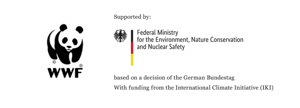For decades the Cheonggyecheon Stream in Seoul, South Korea, had been covered and was used as a road with highway overpasses.
From 2002 to 2005, the City of Seoul brought new life to the downtown area by enhancing the urban environment and incorporating more greenery. The restoration of Cheonggyecheon Stream led to the revitalisation of central Seoul, unleashing the potential for green public spaces. Storms and floods as well as heat waves were also better tackled as a result.
By limiting the traffic in the city center and providing bypasses, Seoul was able to reduce the daily number of cars on its roads by 160,000. As a result, the amount of small-particle air pollution was also decreased by 35%.
The restoration of the stream created over 6 km of green corridors and 400 hectares of parks. Data taken a few years after its completion showed a 6-fold increase of indexed bird species, multiple new fish species found, and an increase in the number of catalogued plant species, from 62 to 308.
With its tranquil and rejuvenating atmosphere, the riverside park attracts 30,000 people every weekend.
At WWF, we're working tirelessly to build a healthier future for both people and planet.
Subscribe to our newsletter to be part of our journey, keep up-to-date with our vital work, and discover ways you can get involved!

Connect2Earth is part of the project “Scaling up Biodiversity Communication”, supported by Germany’s Federal Ministry of the Environment, Nature Conservation and Nuclear Safety with funding from the International Climate Initiative (IKI)

© 2017 WWF - World Wide Fund For Nature© 1986 Panda Symbol WWF – World Wide Fund For Nature (formerly World Wildlife Fund)® “WWF” is a WWF Registered Trademark Creative Commons license.